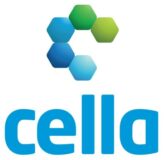Spinout News / UCLB News
Cella Energy opens new facility at NASA's Kennedy Space Center
11 October 2011

Cella Energy Ltd is to set up a new facility at NASA’s iconic Kennedy Space Center (NASA KSC) as a result of a $2.5million investment led by Space Florida. The investment in Cella’s new safe, low-cost hydrogen storage technologies will also enable Cella Energy to set up a facility at Rutherford Appleton Laboratory (RAL) in the UK. The funds will see the number of jobs at Cella Energy more than double.
Cella Energy’s technology was developed by researchers at University College London (UCL) in collaboration with scientists from the RAL and the University of Oxford. It provides a cheap, safe and practical way of storing hydrogen, meaning that it is no longer necessary to use high-pressure tanks. Hydrogen, which produces only water when burned, is considered an ideal solution to cutting carbon emissions from road vehicles, the source of 25 per cent of the carbon released in countries like the USA and the UK.
The investment led by Space Florida has been secured just eight months after Cella was founded, and follows an initial investment from Thomas Swan & Co Ltd, a specialist UK chemical company established in 1926.
Dr Tim Fishlock, Business Manager at UCLB, said: “As a shareholder UCLB is delighted that Cella Energy has secured this next round of investment from Space Florida in what is clearly a very challenging economic climate. We wish the team every success with their future plans and look forward to seeing these exciting, innovative technologies reach market.”
More details on the technology can be found at: www.cellaenergy.com
About Cella Energy Ltd
Cella Energy Limited has unique patented technology in safe, low-cost hydrogen storage materials. Cella is a spinout company from the Rutherford Appleton Laboratory at Harwell, Oxford, UK. RAL is a UK Government facility, equivalent to Argonne National Laboratory in the US. The company’s lead investor is Space Florida, an Independent Special District of the State of Florida, created by Chapter 331, Part II, Florida Statutes, for the purposes of fostering the growth and development of a sustainable and world-leading space industry in Florida. Cella has facilities at RAL and the NASA Kennedy Space Centre in Florida.
Work began on the technology in 2007 led by Professor Stephen Bennington and Dr Arthur Lovell at the 1,200 person STFC ISIS facility at the Rutherford Appleton Laboratory and at the London Centre for Nanotechnology at University College London (UCL). The work at UCL was led by EPSRC funded EngD student Zeynep Kurban and Professor Neal Skipper. In addition Professor Bill David from STFC and Dr Martin Owen Jones from Oxford University, have provided valuable insights into advanced complex hydride materials
Cella Energy is a member of the UK Hydrogen and Fuel Cell Association (UKHFCA).
About Space Florida
Space Florida was created to strengthen Florida’s position as the global leader in aerospace research, investment, exploration and commerce. As the State of Florida’s aerospace economic development organisation, we are committed to tripling the size of Florida’s aerospace-related economy by 2020. With its highly trained workforce, proven infrastructure and unparalleled record of achievement, Florida is the ideal location for aerospace businesses to thrive – and Space Florida is the perfect partner to help them succeed.
For further information, please visit the website: www.spaceflorida.gov
About UCLB
UCLB is a leading technology transfer company that supports and commercialises research and innovations arising from UCL, one of the UK’s top research-led universities.
UCLB has a successful track record and a strong reputation for identifying and protecting promising new technologies and innovations from UCL academics. It invests directly in development projects to maximise the potential of the research and manages the commercialisation process of technologies from the laboratory to market.
UCLB supports UCL’s Grand Challenges of increasing UCL’s positive impact on and contribution to Global Health, Sustainable Cities, Intercultural Interaction and Human Wellbeing.
For further information, please visit the website: www.uclb.com